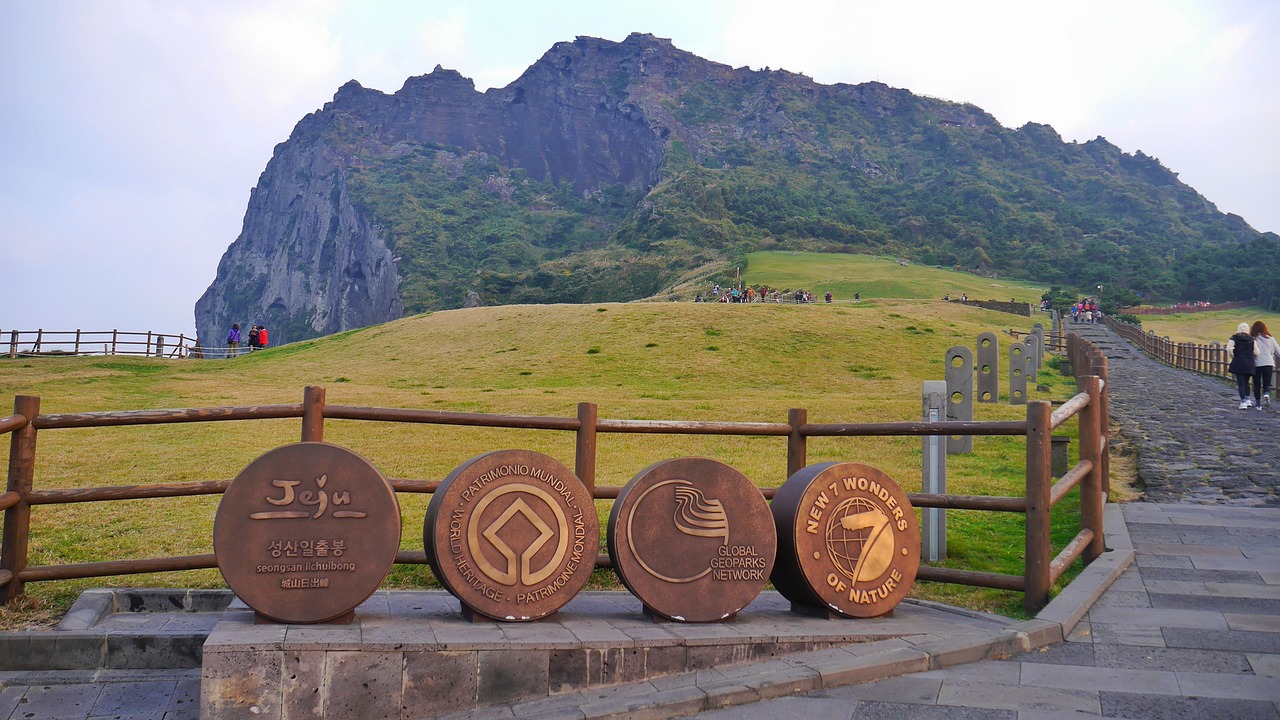South Korea Video
Cultural Sensitivities: Understanding Local Norms in South Korea
South Korea, officially known as the Republic of Korea, is a vibrant and culturally rich country located in East Asia. With a long and fascinating history, South Korea has developed a unique set of cultural norms and customs that are important to understand when visiting or interacting with locals. This article aims to provide a comprehensive guide to cultural sensitivities in South Korea, ensuring a respectful and enjoyable experience for all.
Historical Background
South Korea has a rich history that dates back thousands of years. From the Three Kingdoms period to Japanese colonization and the Korean War, the country has experienced significant events that have shaped its culture. Understanding this historical background is crucial in appreciating the values and traditions held by the Korean people today.
- Three Kingdoms Period: The Three Kingdoms period (57 BCE – 668 CE) marked a significant era in Korean history when the kingdoms of Goguryeo, Baekje, and Silla coexisted and competed for power.
- Japanese Colonization: From 1910 to 1945, Korea was under Japanese rule, which had a profound impact on the country’s cultural identity.
- Korean War: The Korean War (1950-1953) resulted in the division of the Korean Peninsula into North and South Korea.
The Three Kingdoms period laid the foundation for many aspects of Korean culture, including art, architecture, and language.
During this time, Koreans faced oppression and were forced to adopt Japanese customs and language.
The war left a lasting impact on the country, both politically and socially, with families being separated and a stark ideological divide between the two regions.
1. Greetings and Politeness
In South Korea, greetings are highly valued, and showing respect through politeness is essential. Here are some key points to keep in mind:
- Bow: A slight bow is a common greeting in South Korea. The depth of the bow may vary depending on the level of respect or formality involved.
- Handshake: Handshakes are also acceptable, particularly in more formal settings or when greeting foreigners.
- Titles and Names: Addressing someone by their appropriate title is crucial in Korean culture.
When greeting someone older or in a position of authority, a deeper bow is appropriate.
However, it is best to wait for the other person to initiate the handshake.
Using honorifics such as “oppa” (older brother) or “noona” (older sister) when referring to someone older is considered respectful.
2. Dining Etiquette
Food holds great significance in Korean culture, and proper dining etiquette is highly regarded. Here are some important points to remember:
- Table Manners: When dining in South Korea, it is customary to wait for the eldest or most senior person to start eating before beginning your meal.
- Chopsticks and Spoons: South Koreans primarily use metal chopsticks and spoons while eating.
- Sharing Dishes: Korean meals often consist of several shared dishes placed in the center of the table.
Additionally, it is considered impolite to leave any food uneaten, as it may be seen as wasteful.
It is important to avoid using chopsticks to point at people or objects, as this is considered impolite.
It is customary to wait for the eldest or most senior person to serve themselves first before taking any food.
3. Respect for Elders
Respect for elders is deeply ingrained in Korean culture. It is important to show deference and follow certain customs when interacting with older individuals:
- Age Hierarchy: Age is highly respected in South Korea, and older individuals are considered to have more wisdom and experience.
- Gift Giving: Presenting gifts to elders as a sign of respect is common in South Korea.
- Seating Arrangements: In social settings, seating arrangements often follow the age hierarchy.
It is customary to use appropriate honorifics and deferential language when speaking to someone older.
When giving a gift, it is polite to use both hands and bow slightly while offering it.
The eldest or most senior person is typically seated in a position of honor, such as the head of the table.
South Korea Image 1:

4. Personal Space
Respecting personal space is important in South Korea, as individuals value their privacy and personal boundaries. Consider the following:
- Bowing: When greeting someone, it is customary to maintain an appropriate distance and avoid physical contact unless the other person initiates it.
- Queuing: South Koreans value order and respect in public spaces, so it is important to queue properly and wait your turn in lines.
- Avoid Touching: Touching someone without their consent, even in a friendly manner, may be seen as inappropriate.
A slight bow is sufficient, and excessive physical contact may be seen as intrusive.
Avoid pushing or cutting in line, as this is considered impolite.
It is best to respect personal boundaries and refrain from physical contact unless given permission.
5. Clothing and Appearance
South Koreans place importance on personal presentation and dressing appropriately for different occasions. Consider the following guidelines:
- Conservative Attire: When visiting religious sites or attending formal events, it is best to dress modestly and avoid revealing clothing.
- Removing Shoes: In many Korean households, it is customary to remove your shoes before entering.
- Business Attire: In professional settings, business attire is expected, with men typically wearing suits and ties, and women wearing conservative dresses or suits.
Wearing clean and well-maintained clothing shows respect for the occasion.
Follow the lead of your host and observe if they provide slippers or ask you to keep your socks on.
It is essential to present oneself professionally and maintain a neat appearance.
South Korea Image 2:

6. Gift Giving
Gift giving is an important aspect of Korean culture and is often used to show appreciation, respect, or congratulations. Consider the following when giving gifts:
- Appropriate Gifts: When choosing a gift, it is best to select something that reflects the recipient’s interests or something of value.
- Money as a Gift: Giving money as a gift, known as “bokjumeoni,” is common for special occasions like weddings or birthdays.
- Refusing a Gift: If someone offers you a gift, it is polite to accept it graciously.
Gifts should be wrapped neatly and presented with both hands.
When giving money, it is customary to use crisp, new bills and place them in an envelope.
Refusing a gift may be seen as rude or offensive.
7. Public Behavior
When in public spaces in South Korea, it is important to be mindful of your behavior and adhere to certain customs and norms. Consider the following:
- Silence on Public Transportation: It is customary to maintain a quiet and respectful atmosphere on public transportation.
- No Smoking Areas: Smoking is prohibited in many public areas, including restaurants, cafes, and public transportation.
- Trash Disposal: South Koreans take cleanliness seriously, and it is important to dispose of trash properly.
Avoid talking loudly or playing music without headphones.
Be mindful of designated smoking areas and avoid smoking in non-designated areas.
Look for designated trash bins and separate recyclables from general waste.
South Korea Image 3:

8. Communication Style
Understanding the communication style in South Korea can help facilitate effective and respectful interactions. Consider the following:
- Indirect Communication: South Koreans often use indirect communication, relying on context, nonverbal cues, and hierarchy.
- Respectful Language: Using polite and respectful language is crucial in Korean culture.
- Saving Face: South Koreans value maintaining harmony and saving face.
It is important to pay attention to nonverbal cues and listen carefully to understand the underlying message.
Addressing someone with appropriate honorifics and using formal speech shows respect.
Avoid criticizing or openly disagreeing with someone in public to prevent embarrassment.
9. Etiquette in Temples and Palaces
When visiting temples and palaces in South Korea, it is important to observe certain etiquette to show respect for the religious and historical significance of these sites. Consider the following:
- Remove Shoes: Before entering a temple or palace, remove your shoes and place them in the designated area.
- Dress Modestly: Dress modestly and avoid revealing clothing when visiting religious sites or palaces.
- Observe Silence: Maintain a quiet and respectful demeanor, especially in areas of prayer or meditation.
Wear socks or bring disposable shoe covers if necessary.
Respect the sanctity of the place by dressing appropriately.
Avoid loud conversations or disruptive behavior.
Conclusion
Understanding and respecting the cultural sensitivities and local norms in South Korea is essential for a positive and meaningful experience. By familiarizing yourself with the historical background, greetings and politeness, dining etiquette, respect for elders, personal space, clothing and appearance, gift giving, public behavior, communication style, and etiquette in temples and palaces, you can navigate the rich cultural landscape of South Korea with confidence and respect.
References
– korea.net
– visitkorea.or.kr
– asiatoday.co.kr
– seoul.go.kr
– koreaherald.com


